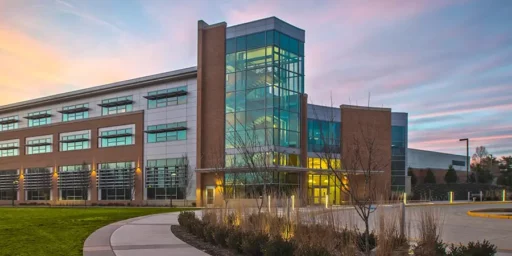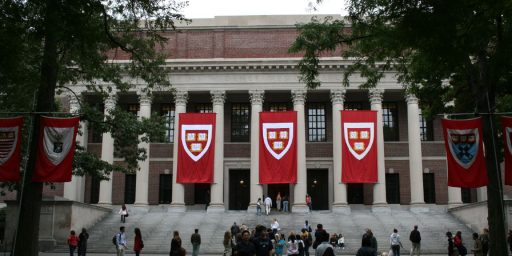Community Colleges ‘Better’ than Universities
Kevin Carey introduces a study on the quality of education at America’s community colleges by noting that,
Pretty much everyone assumes that every four-year university, regardless of quality, rates above every community college. Yet the reality isn’t so simple. We gathered the answers that students at the community colleges on our list gave to specific questions on the CCSSE survey. Then we compared the average results with the answers given to the same questions by students at research-intensive universities that participate in a similar study, the National Survey of Student Engagement (NSSE). Table 1 shows the surprising results of that comparison: on a number of important measures, the colleges on our list outperform their four-year peers. More than two-thirds of the community college students ask questions in class or contribute to class discussions, compared to only half of the four-year students. Student-faculty interaction is also better—the community college students are more likely to get prompt feedback on performance and to interact with their professors during and outside of class. And the level of academic challenge is more than comparable—the community college students were more likely to work harder than they thought they could to meet their professor’s expectations. The first concern of the research university is, unsurprisingly, research. Community colleges, by contrast, are far more focused on teaching, and some are doing it better than even the most esteemed four-year institutions.
Having taught at both the community college and university level, I’m not at all surprised. For one thing, JuCo students tend to be older and are much more likely than their university counterparts to be paying their own freight. It’s not at all surprising that they’re more engaged in their studies. And JuCo faculty are more likely to see themselves as teachers rather than subject-matter experts who are burdened with teaching loads in order to live the “life of the mind.”
That said, I echo the sentiments my colleague Chris Lawrence expressed yesterday in response to the magazine’s ranking of Texas A&M as the “best” university in the country: “I expect approximately zero Washington Monthly readers will send their kids to A&M in preference to Harvard.” That goes double for Atlanta Technical College, the top-ranked community college.
There’s not much doubt in my mind that I got more personal attention from the professors at Jacksonville State than I would have had I gone to one of the Ivies, let alone a large state research university. With the exception of the liberal arts colleges, the more prestigious the school, the more likely undergraduates are to be foisted off on graduate teaching assistants or adjuncts and crammed into gigantic lecture halls. And, unless one is getting a free ride from a scholarship, it makes all kind of sense to get the two years of introductory coursework out of the way at a cheap junior college under the watchful eyes of caring instructors and then transfer to a four-year school.
Similarly, there’s no doubt that a degree from Harvard — or, indeed, Texas A&M — is far more desirable than one from a regional teaching institution with no national reputation. My guess is that the staff of the Washington Monthly is likely to value that more than it does the virtues it’s extolling in their higher ed coverage.
via Kevin Drum, who celebrates his 5th blogging anniversary today!






I’d like state as a data point that at Princeton, I had good access to professors. Some courses were graded by TAs, but in quite a few of them, I had professors grading my work.
I’ll agree with this, based on my experience at NYU. Just more evidence for college as a socioeconomic sorting mechanism rather than a genuine educational experience.